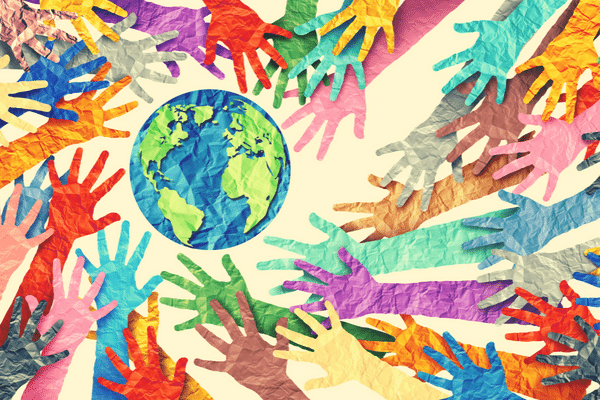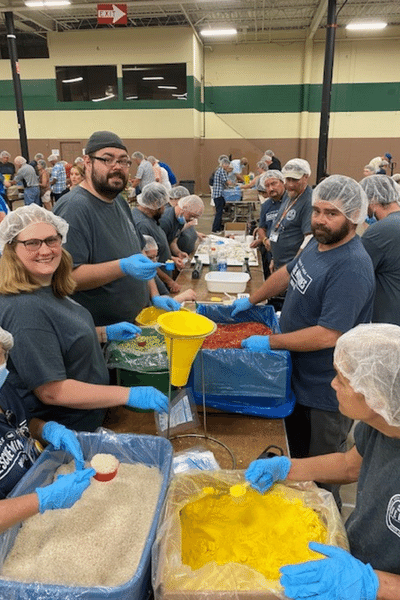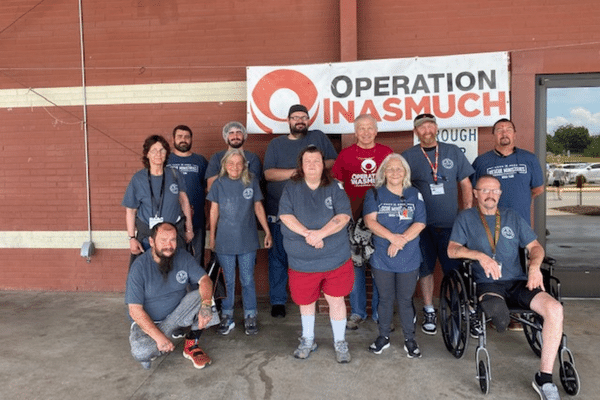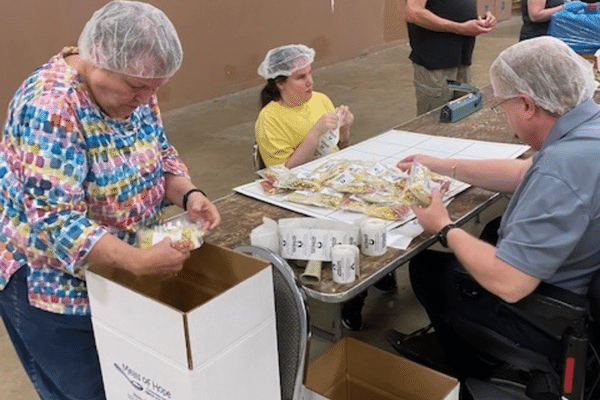Anyone Can Serve Others

In Compassionaries: Unleash the Power of Serving I say anyone can serve. That may be obvious to some, but you can be sure others disagree. They claim they cannot serve. They are of advanced age, or they are disabled and, therefore, of limited ability. They don’t know how/where to plug in. (I won’t get into the less legit reasons for not serving—being too busy, afraid of being taken advantage of, not being asked to serve—but I do address these in the book.)
In this blog I ask you to reflect more deeply on the idea that anyone can serve. Do you believe that? Does your mind privately go to objections to that statement? Is there a voice inside your head that says, “That sounds nice but it’s really not true?”
On this point I often quote Martin Luther King, Jr who said: “Anyone can be great because anyone can serve. You don’t have to have a college degree to serve. You don’t have to make your subject and verb agree to serve. You only have to have a heart full of grace, a soul generated by love to serve.” As he was gifted to do, King makes the point that anyone can serve others in a way that is memorable and insightful. But is it true?
A Broader Understanding
If your image of serving is roofing a house or building a wheelchair ramp, I can understand why you might object to the idea that anyone can serve. But if your image includes more simple activities such as listening to a neighbor who is lonely and depressed, or helping an elderly woman get her groceries into her home, you are probably okay with the title of this blog.
In my efforts to “evangelize” people to serve others, i.e. persuade people to look for opportunities to serve others AND act of them, I have found it helpful to enlarge common images of serving. Let me offer a definition of serving others that encourages broader thinking about it: Serving others means helping another person at the point of his/her need no matter what it is. Such an open-ended definition leaves room more even the simplest ways of serving.
But doesn’t this broad of thinking about serving encourage “easy” serving? Maybe. But it also helps us see more opportunities to serve and that’s a good thing. No, it’s necessary! The purpose of Compassionaries and the purpose of this blog is to help people develop a serving mindset and that requires a broader understanding of what serving others is. What this world needs is more people with a serving mindset but we will never get there without seeing needs around us including those needs we might not usually recognize as needs.
Persuasive Examples
The Inasmuch ministry recently conducted a huge food packing event in which 277,000 meals were packed by volunteers from the Knoxville area for Ukraine. (For more on this event see the article Inasmuch Packs Meals for Ukraine.) There were about a thousand volunteers involved which stretched our ability to recruit volunteers. We used every means available to us in that recruiting. As a result the volunteers for this event were more diverse than we have ever seen.
Some of them illustrate the truth of this blog—namely, that anyone can serve others. I was especially moved to see a group of formerly homeless people show up to help pack the meals. Jen Rowley of Knoxville Area Rescue Ministries works with the Berea program at KARM. She saw the need for volunteers for the food pack, signed up some in her program and brought them to the event.
“They loved it,” she says. “They want to do it again. Please let us know when you do that again so we can come.” Seeing this group working alongside others from my community, taking their place in serving others, I was moved to tears because I know serving meant more to them than most of the other volunteers. That experience of serving will do a lot to advance their efforts to re-integrate into the community from homelessness, addiction, and other problems.



Another example of a person refusing to allow her disability to prevent her from serving is the young woman shown in the photo. She is blind . . . yet she participated like everyone else in putting food together for war-torn Ukraine. When I spoke to the woman who brought her to the event, she said, “It’s very important to her to serve where she can.” To my knowledge, she was not promised there would be a task she could do despite her handicap, but she came anyhow.
Anyone Can Serve Others
Do these examples help you re-think your image of serving? Do they lead you into agreement with the idea that anyone can serve others? Most importantly, do they lead you to be more aware of opportunities to serve others?
What Do You Think?
How do you respond to this blog? Agree or Disagree? How can the idea that anyone can serve others impact your life? Your church’s life?



Leave a Reply